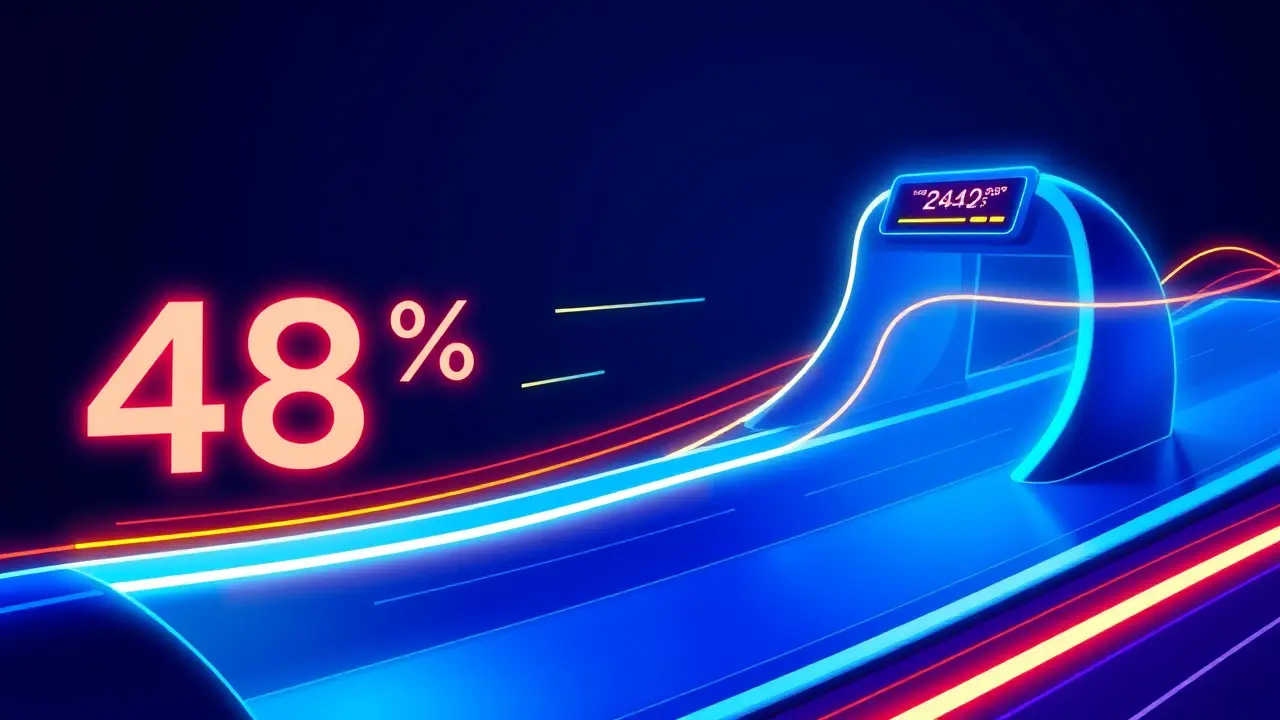
Financepersonal financeBudgeting
Survey: Many Young Americans Spend Paycheck Within Two Days.
ET
Ethan Brown
12 hours ago7 min read
The financial reality for a staggering number of young Americans is a relentless, high-speed treadmill: a new survey commissioned by the financial app EarnIn and conducted by Talker Research reveals that nearly half—48 percent—of the average worker's paycheck is spent within a mere 48 hours of it landing in their account, with more than a third vanishing in the first frantic twelve hours. This isn't simply a story of frivolous spending or a generational lack of willpower; it's a stark symptom of a deeper, systemic economic malaise where the foundational principles of personal finance, the kind extolled in classics like 'Rich Dad Poor Dad,' have been rendered nearly obsolete by the current cost-of-living crisis.Let's break down the anatomy of this 48-hour burn rate. The immediate culprits are the non-negotiable pillars of modern survival: stratospheric rent payments that can devour 30-50% of a single income, car payments and insurance for those living in cities without robust public transit, student loan repayments that have roared back to life, and a grocery bill that seems to inflate with every trip to the store.This is the 'set-it-and-forget-it' drain of automated bill payments, the financial infrastructure that siphons off capital before it can even be conceptualized as savings. The gig economy and the prevalence of living paycheck-to-paycheck have created a scenario where there is no financial cushion, no buffer against the inevitable.When your entire financial existence is calibrated to a two-week cycle, a single unexpected expense—a car repair, a medical co-pay, a spike in the utility bill—can trigger a cascade of overdraft fees and high-interest credit card debt that ensures the next paycheck is spoken for before it even arrives, perpetuating a vicious cycle. This phenomenon also speaks to the psychological impact of scarcity.Behavioral economists have long studied how a focus on immediate needs can eclipse long-term planning. When you're financially stretched thin, the mental energy required for budgeting and saving is often redirected toward simply triaging the most pressing bills.Furthermore, the modern consumer landscape is engineered for immediacy. One-click purchasing, 'Buy Now, Pay Later' services seamlessly integrated into every checkout page, and targeted social media ads create a powerful, constant pull on dwindling resources.The concept of 'paying yourself first'—the golden rule of building wealth—becomes a theoretical luxury when your entire paycheck is already allocated to creditors and landlords. The consequences of this rapid dissipation are profound and extend far beyond individual stress.It means delayed milestones like home ownership and starting a family, a generation with a diminished capacity to invest for retirement, and an entire demographic whose economic resilience is perilously low, making them exceptionally vulnerable to any downturn. For fintech startups and traditional financial institutions alike, this data is a clarion call to develop tools that go beyond simple budgeting and actually help users navigate this paycheck-to-paycheck reality with features like early wage access and automated micro-savings. Ultimately, this survey is more than a snapshot of spending habits; it's a diagnostic of an economic engine running on fumes, where for millions, financial stability is not a goal to be achieved but a two-day reprieve to be managed.
#featured
#paycheck spending
#financial habits
#EarnIn survey
#young Americans
#budgeting
#personal finance
Stay Informed. Act Smarter.
Get weekly highlights, major headlines, and expert insights — then put your knowledge to work in our live prediction markets.
© 2025 Outpoll Service LTD. All rights reserved.